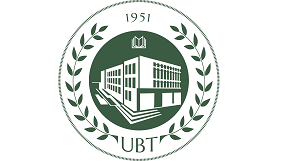ANISA QOSE1; LEONIDHA PERI1; ARSEN PROKO1
|
1 Faculty of Forestry Sciences, Agricultural University of Tirana, Albania
Abstract Medicinal and Aromatic Plants (MAPs) is one of the most important sector in terms of incomes for rural households in remote areas and traditionally most competitive in the world markets. Non Timber Forest Products (NFTP) form an important part of livelihood strategies of the people. Additionally, they can be an incentive to leave the forest intact instead of cutting down trees for timber and fire wood. Skrapari’s area, is one of main areas regarding the collection of the NTFP that constitute an important specific weight in the income of the rural families. The collection and marketing of medicinal plants from the wild is an important source of livelihood for many of the poor in Skrapari’s Municipality, but unfortunately unsustainably managed during the transition period. The goal of this study is that through value chain analyses to provide information necessary on the local policy level to make sound decisions and plan interventions focused on developing productive dependent upon the sustainable management of the natural resources. As a case study value chain analyse through Gjedra Company operating on Skrapari’s Municipality, is conducted in this paper, taking into consideration its activity during 24 last years (from 1993 to 2017). The company has spent a lot of efforts on the improvement of the performance and value chain. Through an economic analysis we will try to identify the effect of the value chain improvement on the performance and incomes increasing. The analysis consists on the identification of the value chain improvement to increase of the number of products, MAPs quantity and the total incomes. As are showing on the results of this paper there is a good relationship between the improvements of the value chain at all the hangers and the performance of the company. Keywords: MAPs, Value Chain Analysis, Skrapari’s Municipality, Gjedra shpk |
